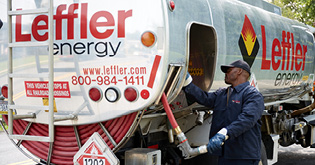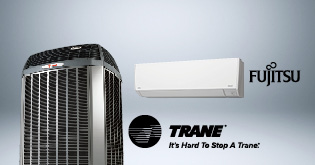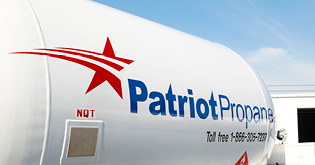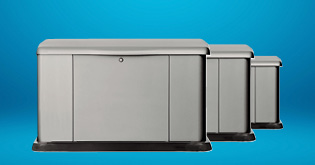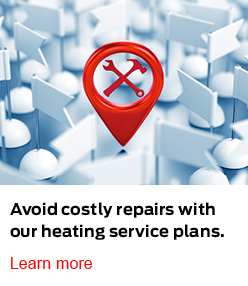Articles.
Below are the categories for any articles that are published on our website. You can find articles on topics ranging from heating oil, propane, heating equipment, cooling, generators and much, much more. Our Home section also contains important tips, insightful facts and helpful how-to guides on lots of topics about everything from home generators to important safety tips for taking care of your home and family. We also update our Featured Articles section with our newest and most relevant seasonal content to help you with your home services throughout the year. Check them out below...
Featured articles.
Choosing the best air conditioning system for your home.
Pennsylvania summers get hot and living without air conditioning is almost unthinkable. Choosing the best air conditioner for your home — and your budget — is an important consideration. Contact Leffler Energy to learn how we can help you choose the best air conditioning option for you.
We’ve compiled a guide on how to choose the right air conditioning system for your home. We’ve considered cost impacts and the type of home you may have. Before you have an air conditioning system installed, contact Leffler Energy so we can make sure your new system meets all your family’s needs.
Types of air conditioning systems.
Four types of air conditioning systems dominate the residential market. Each type is useful in its own way, but without information on the various types of systems, you may not know which one is right for you.
Window units.
Window air conditioning units are the cheapest and easiest way to cool a room in your home. Meant to fit into single- and double-hung windows, portable units can be purchased at most hardware stores and big-box retail outlets.
The Pros
- Easy to install - You just need to make sure the unit is installed close enough to an outlet to plug in.
- Inexpensive - These units are typically the cheapest and require very little maintenance.
- Efficient - Window units are quickly improving in efficiency, as long as you keep them clean.
- Covered – Window units often come with warranties lasting up to five years or more.
The Cons
- Not Comprehensive - Using window units means you’ll require a single unit for each room or space that needs to be cooled.
- Using Windows - Window units can impact the natural lighting of a room and can obstruct views you might otherwise enjoy.
- Noisy - Window units are typically very noisy and will often have to run day and night during the hotter months.
- Environmental Factors - Room attributes such as high ceilings and lots of sun exposure can easily impact the effectiveness of window units.
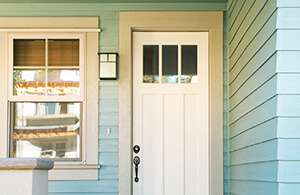 Portable units.
Portable units.
Portable air conditioners draw in hot or warm air, remove moisture and heat, and blow out cooled dry air. Some require a duct fixture or hose to be installed in the nearest window, while others are standalone units.
Portable air conditioning units are in a way an upgrade from window-mounted units. Able to be repositioned and sometimes only requiring a duct to be installed in a window, they are typically much easier to install than window units.
The Pros
- Ease of Installation - Since they sometimes only require a duct fixture to be installed in the nearest window, they are significantly easier to install than heavy window units.
- Movable - These units generally roll on casters, so their position can be optimized for the space they are cooling.
- Free Windows - The hose system that draws in hot air is easily removable from windows when needed and doesn’t obstruct views as a window-mounted unit does.
The Cons
- Less Power - Consumer Reports often find portable air conditioning units do not deliver the cooling power they claim.
- Costly - Portable units tend to be more expensive and use more energy, which means they could create higher energy costs.
- Maintenance - Many portable units have water reservoirs that must be emptied from time to time.
- Noisy - Only more expensive units are quieter than their window-mounted counterparts.
Ductless/Mini-Split systems.
A ductless/mini-split air conditioning system acts like a heat pump without ductwork. They use an air compressor located outdoors to pull hot air in and blow out dry cool air.
NOTE: A conduit hose connects the outdoor compressor to the indoor evaporator and air handling unit.Ductless units are considered the most energy-efficient air conditioning systems on the market. They also can be installed in just about any home because they do not require expensive ductwork. For older homes — and those where it isn’t feasible to install ductwork — ductless systems are considered the ideal choice.
The Pros
- Efficient – The more compact design allows them to be installed anywhere and run more efficiently than portable and window-mounted air conditioning systems.
- Dual Use - Because they function with a heat pump, ductless units can also be used as heating systems in the winter.
- Quiet - Since the compressor runs outside the home, these units are quieter than the window and portable units.
- Out of the Way - Windows don’t need to be used, which means no views are obstructed and no security risks are incurred by keeping a window open.
The Cons
- Expensive - As a conduit must be run outdoors — and the units are designed to run very efficiently — ductless units are often more expensive to purchase than window or portable units.
- Installation - Drilling through walls is required, so ductless units should only be installed by a professional.
- Wall-Mounted - Because ductless units are wall-mounted, they can negatively impact the interior design of a room.
Central air systems.
For those looking for the most efficient way to cool their homes, central air conditioning systems are the ideal choice. As long as you have ductwork already in the home, you can use the same infrastructure your furnace uses to heat your home to keep it comfortable in the hot Pennsylvania summer months.
Cool air is distributed evenly in every room, which means there’s only one single unit for your entire home. Most central air systems can also be controlled by return and supply registers in each room, so you can customize how cool or warm your home is based on individual needs.
The Pros
- Most Efficient - Central air cooling is the most cost- and energy-efficient method of regulating temperature in your home.
- Comfort - With temperature regulation, you can cater each room to anyone’s individual needs at any time.
- Pleasantly Noiseless - All components of central air systems are located outside, so you can enjoy a completely silent and secure way to cool your home.
The Cons
- Maintenance - Requires at least annual maintenance to run at peak efficiency.
- Potentially Costly - If you require new ductwork to be installed, the initial upfront cost can be extremely high.
One more important consideration — regardless of the type of system — is the size of the unit. Using an undersized system for your room or home will mean no relief from the hottest days. An oversized system may “short cycle,” meaning parts could wear out more quickly.
Whether you’re considering a ductless or central air-conditioning system, bringing in the right professionals is the most crucial factor in choosing the right solution for you and your home. Only a licensed professional can determine the best type, size, and placement of your air conditioning system.
To keep things cool, Leffler Energy has got your back—contact us today!


